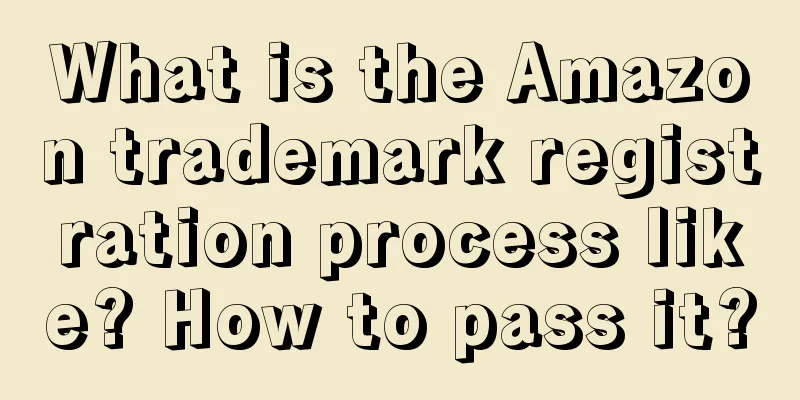Is Amazon cross-border e-commerce good? Pros and cons analysis

|
Amazon, AliExpress, and Shopee are the most famous platforms in the cross-border e-commerce industry, and they also have the most merchants. Almost every merchant will do homework on the platform before settling in. So is Amazon cross-border e-commerce good? 1. Advantages 1. Face large-scale consumers directly Many people shop on Amazon. As of January 2017, Amazon Business had 400,000 customers. According to a BloomReach survey, more consumers are starting to search for products directly on Amazon instead of Google. Consumers are happy with Amazon. If you already sell products on Amazon, you can also sell them on Amazon Business. 2. The platform has powerful B2B services Amazon is said to spend more than $13 billion on research and development each year. The platform provides a very good user experience, which helps stimulate sales. Amazon Business provides B2B sellers with a variety of professional services, including quantity discounts, business quotations, procurement software integration, and tax-free procurement. 3. Streamline the order fulfillment process If the seller chooses FBA, Amazon will help you deliver the order. The seller only needs to send the product to the Amazon warehouse, and Amazon will be responsible for the subsequent sorting, packaging and delivery process. In addition, Amazon also helps FBA sellers provide relevant customer service, such as refunds and returns. 4. Highlight the differences If you are certified as a small business, or if your business owner is a woman, minority or veteran, you can put this information into your seller profile. This allows business buyers to re-segment their search results, for example, to search for products from women-owned businesses or small business products. 2. Disadvantages 1. You need to give up some profits Depending on the product category, sellers are required to pay a 6%-15% final transaction fee (except for some products). In addition, there are FBA fees. 2. Sellers exist as a whole It is difficult to establish personal connections with buyers or differentiate yourself from other competitors. On the Amazon Business platform, buyers can easily search for the lowest price supplier and then purchase products from them. 3. Limited communication with buyers Amazon restricts the way sellers communicate with customers and also regulates the information contained in the packages sent to buyers. Amazon considers this to be its customers, not the sellers. Therefore, it is difficult for customers to know your brand name and establish more connections. 4. Data and Management Uploading product information to Amazon is very time-consuming. Each product category has its own regulations. The way product information is organized greatly affects the product's exposure and sales rate. In short, the advantages and disadvantages of doing business on Amazon's cross-border e-commerce platform have been introduced in the article. The Amazon platform is highly competitive, some people make money, and some lose money. So it is up to the merchants to distinguish for themselves. |
<<: Is Amazon's cross-border e-commerce reliable? Is it legitimate?
>>: How is Amazon's cross-border e-commerce business? A detailed analysis
Recommend
Why can’t I log into the Shopee Taiwan site on my mobile phone?
For some users, they may encounter problems when t...
Is it possible not to participate in Amazon video verification? What are the requirements for opening a store?
On Amazon, you can do video verification. After do...
4 experiences gained from advertising on Xiaohongshu with a 7-figure investment
This article will discuss how to discover product ...
Hua & Hua's new work "Sausage Mouth" is so ugly
In the era of information explosion, exaggerated a...
Does Amazon's payment arrive immediately? How long does it usually take to get the payment?
When opening a store on Amazon, if the merchant ha...
Which is better, Amazon or Lazada? How to choose?
If you want to do cross-border e-commerce, you can...
How to claim Amazon's European shipping subsidy? What is the method?
Amazon has many sites, including the Amazon Europe...
A monthly income of over 10,000 yuan is no longer a dream! Community errand service becomes the new favorite
Stop envying the delivery guy who earns over 10,00...
"Internet celebrity with millions of fans" Xiucai title: neglected emotions of middle-aged and elderly people and the neglected silver hair market
Xiucai, who frequently appears in shy actions, has...
What will happen to digital marketing in 2024?
Digital marketing has been developing in recent ye...
Lei Jun, Zhou Hongyi and Dong Yuhui were imitated! These fake internet celebrities are so ridiculous
This article explores the recent imitation phenome...
Why can WPS create two million-level accounts on Xiaohongshu?
WPS makes its own account, masters the traffic pas...
What role should copywriters play and what functions should they assume?
Nowadays, when we talk about copywriting, things h...
Halfway through 2024, where is AI going?
The big model industry is shifting its focus to ac...
When large companies start to "compete" for college students, do they rely on training or just letting them grow?
This article focuses on the peak of autumn recruit...









